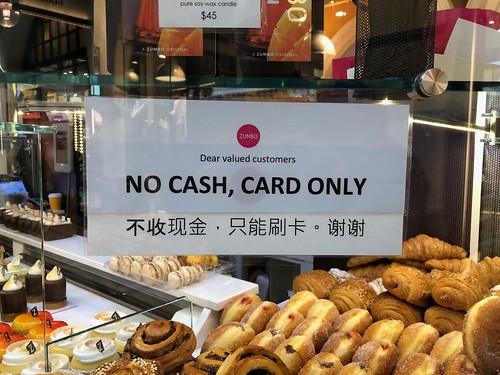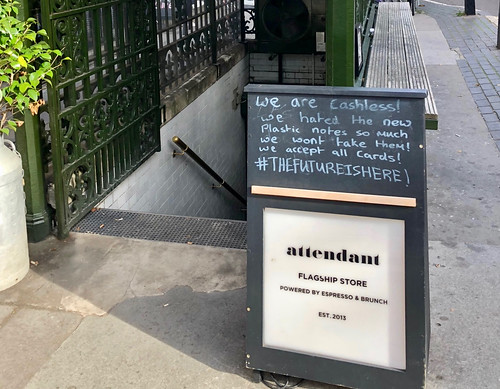I was very happy to note that Starbucks has decided to go the extra step and get rid of cash. Well, in one of its stores at least. The coffee chain is conducting an experiment at a branch in Seattle, Washington, by having it go completely cash free to explore the the dynamic. It hasn’t yet spread - the last Starbucks I was in I wanted to pay using my app but I’ve forgotten the password so I just used a contactless card (like pretty much everyone else in the line), but I’m sure I saw someone pay with cash while I was waiting - but I’m sure it will as the meme is speaking. Credo tested a cash-free policy at its San Francisco and Brooklyn stores and “it went off without a hitch” so the chain opened its first cash-free establishment in Boston and never looked back.
Cafés are following suit in other developed nations. A new one in Singapore had the proud title of the first cashless restaurant on the Island. Interestingly, as well as taking the usual payment cards (including NETS, the local debit network), they used the opportunity to accept cryptocurrencies “such as Bitcoin” (although I’d be surprised if anyone paid this way.). Why the trend? Well, as the Washington restaurateur Bo Blair (whose company operates eight fast-casual and three sit-down restaurants in DC, some of which had been robbed) notes, while cost-conscious small businesses might operate cash-only to avoid card processing fees, cash has hidden costs such as armoured cars taking money to banks, an extra hour for workers to cash up (and dishonest employees helping themselves).
Now, coffee shops and cafes go cashless for all of these reasons - the cash register wastes counter real-estate, making change is time-consuming and holds up the line, cashing up is an unproductive use of resources - they have an extra driver. Here’s what an Australian butcher had to say about it: "We’ve been cashless for 3 years now and haven’t looked back… We made the switch for a number of reasons, but chief among them was something that’s of the utmost importance when selling food: hygiene”. I can remember this being a factor many, many years ago in the early trials of Mondex. For bakers (and hairdressers, as I remember) handling dirty money meant that they had to keep moving away from customers to go and wash their hands.
Anyway, hand washing or not, contactless has exploded in the UK. In the last year, contactless payments volumes were up by around a third and contactless is now more popular than chip and PIN at POS. In fact, contactless is now more popular than cash (cash usage fell 15% last year).
Contactless makes all of the hidden costs of cash a thing of the past. Frankly, it’s not that hard for food outlets in certain places (eg, London) to decide to go down this route. In the UK, over a third of people surveyed regularly leave home and go out with just one or more cards, while a sixth already leave home with just a single contactless payment method (which in some cases will be phone or a wearable I think). This why I told the BBC, in a story about cashless pubs, that "It's slightly surprising to me that there aren't more of these cashless places already”.


Comments
Post a Comment